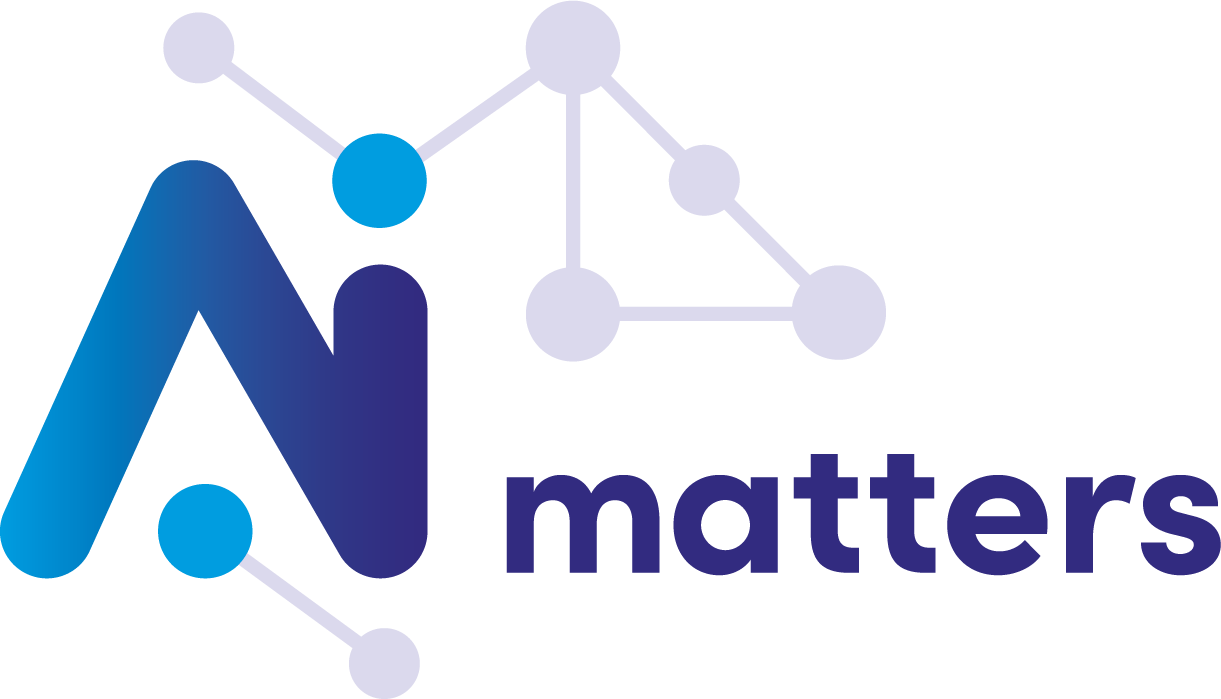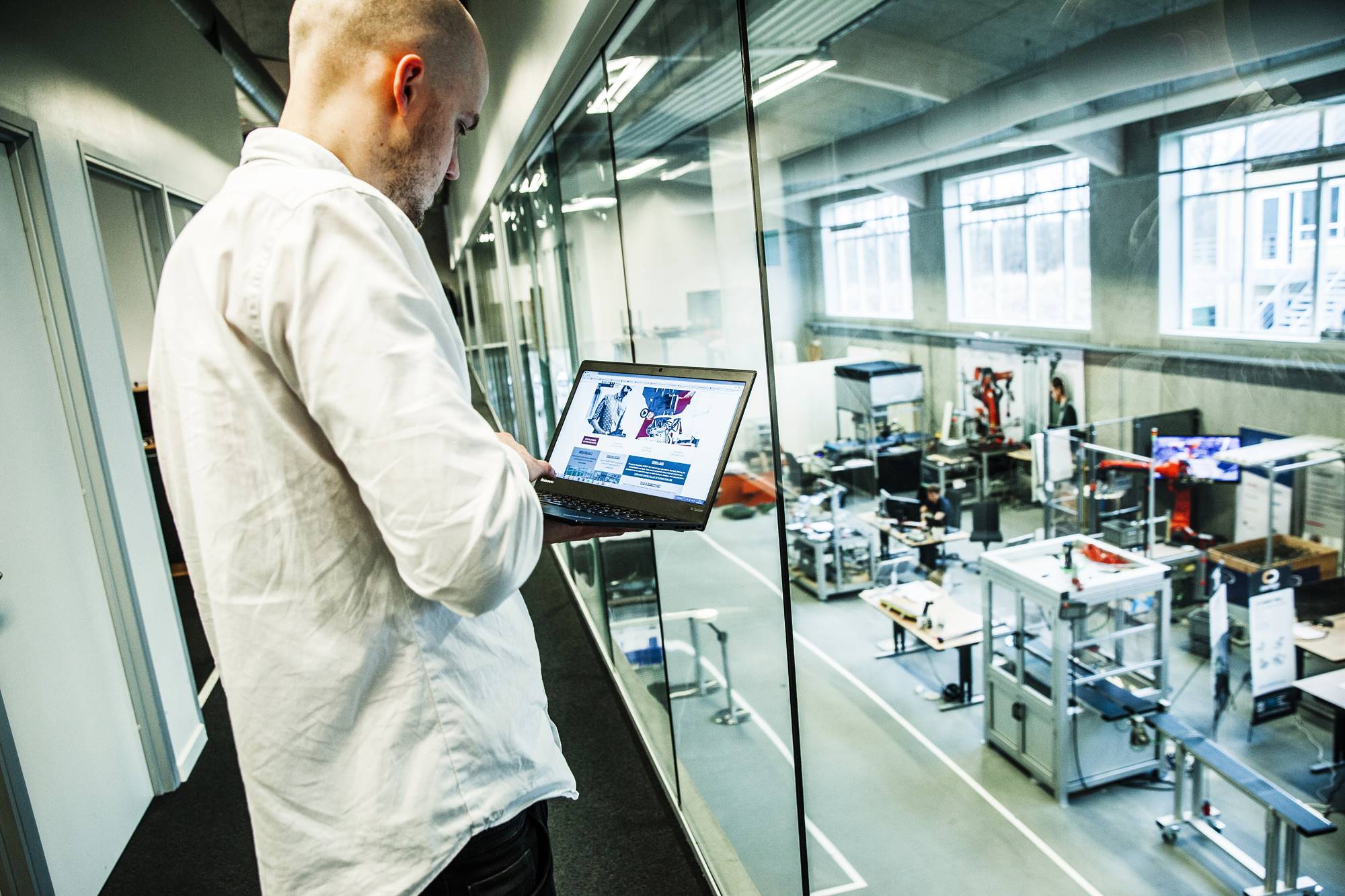
Challenges and topics
Four challenges and over 50 topics
Subject area 1
Optimization of the factory floor
Manufacturing plant optimization focuses on the use of advanced technologies and process improvements to streamline operations. It aims to increase efficiency, reduce waste products and increase productivity by integrating automation, data analysis and real-time monitoring to ensure a seamless and optimized production flow.
The topics include:
- Flexible production
- Fast prototyping
- AI for autonomous decision-making
- Self-adapting production processes
- Support for logistics management
- Process, planning, monitoring
- Intelligent material flow systems
- Palletizing
- Automatic assembly/disassembly
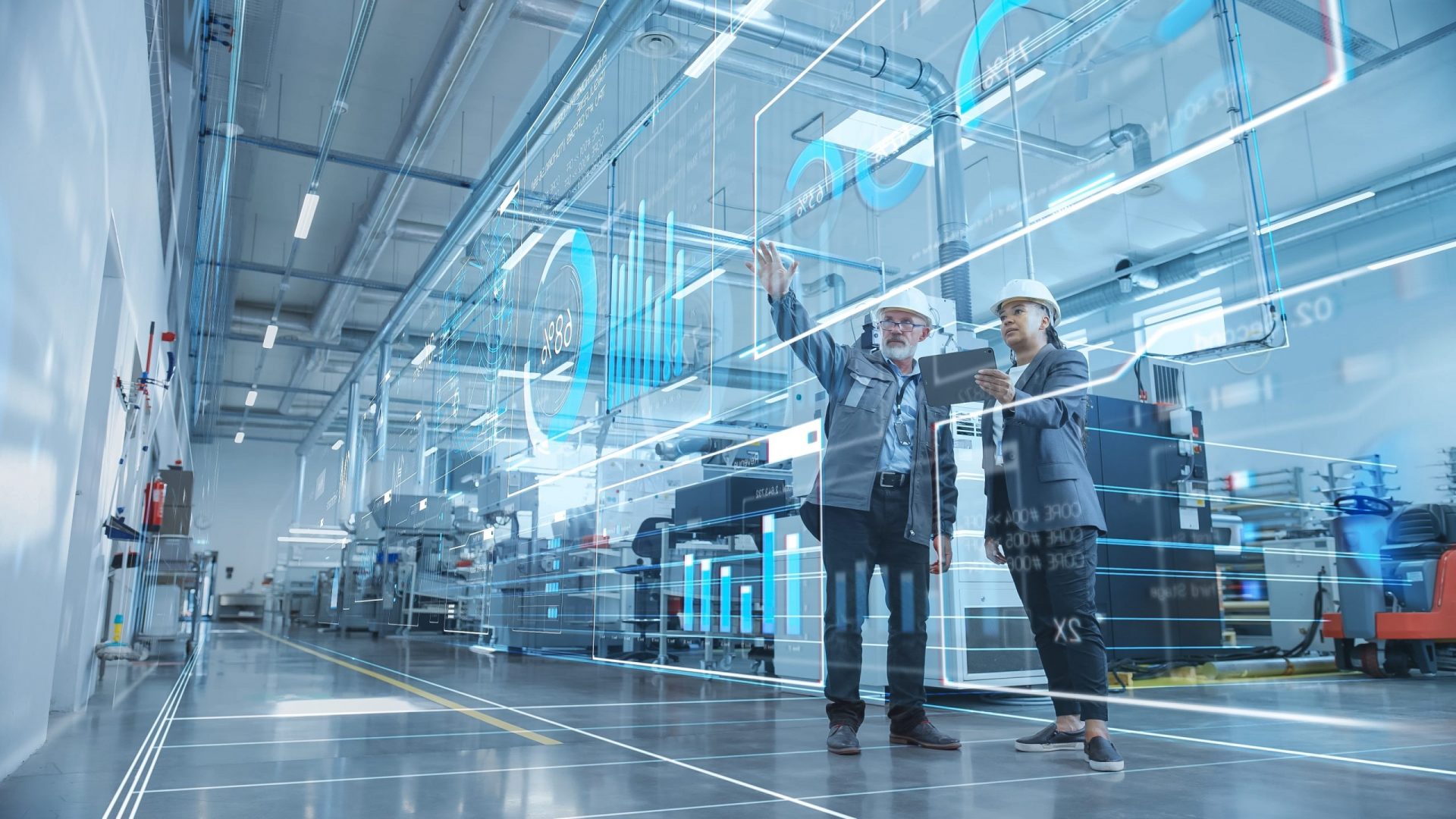
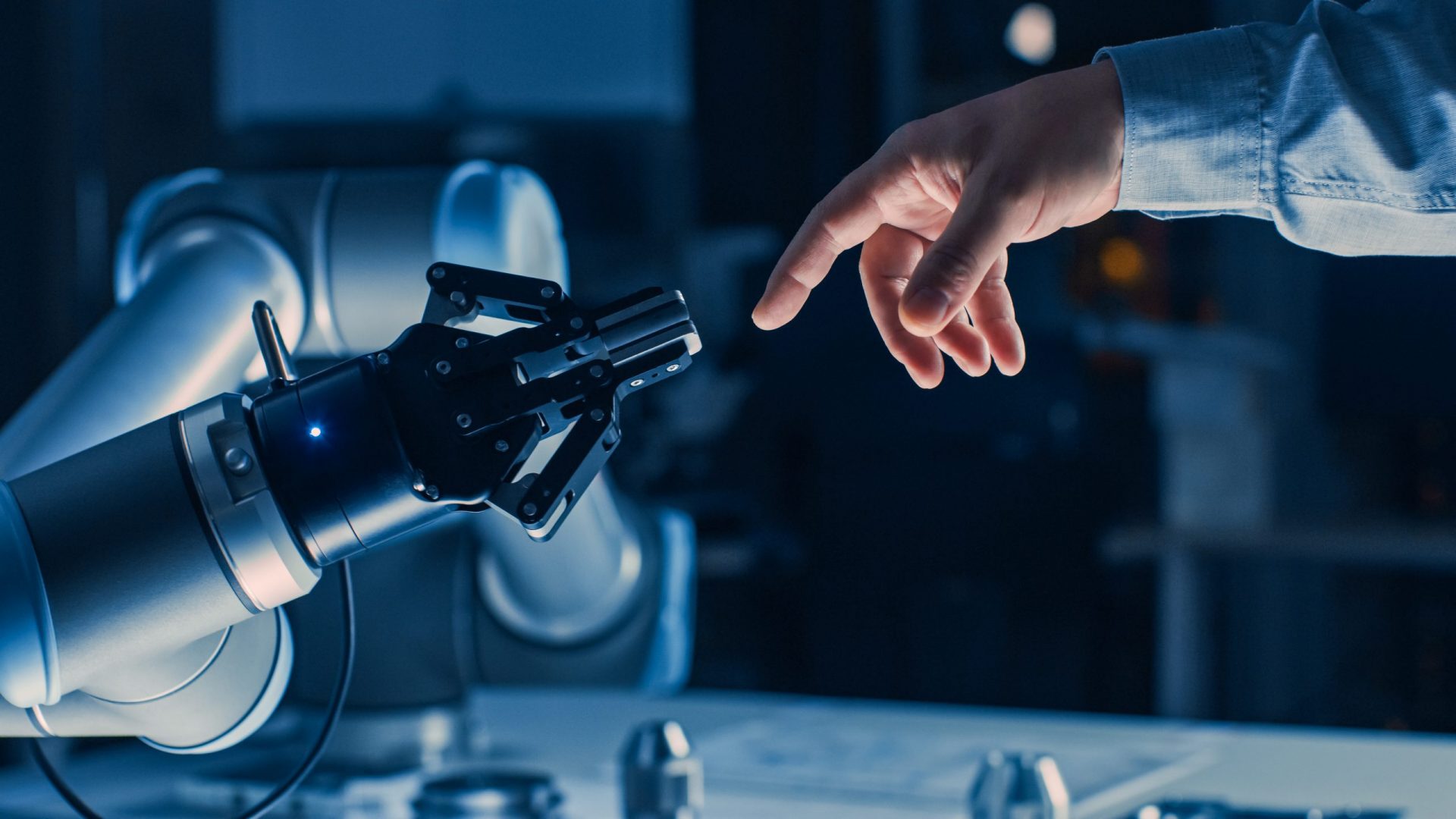
Subject area 2
Human-robot interaction
In a manufacturing environment, human-robot interaction (MRI) focuses on creating efficient, safe collaboration between workers and robots. Effective MRI in manufacturing leads to higher productivity, lower error rates and improved worker safety and promotes an environment where humans and robots can coexist and complement each other’s skills.
The topics include:
- AI-supported robot control
- Security and security management
- AI-supported teaching and programming
- Division of tasks and planning
- Localization
- Force/object control
- Intelligent gripping and object manipulation
- Natural language processing
- Teaching by demonstration
- Self-configuration
- Self-tuning
Topic area 3
Circular economy
The circular economy in the manufacturing industry focuses on minimizing waste and making the best use of resources. This approach involves designing products for longevity, reuse and recyclability and promotes sustainable production processes. The aim is to create a closed-loop system in which materials are continuously reused, reducing environmental impact and promoting innovation and efficiency.
Topics include:
- Resource consumption
- Dismantling
- Tracing
- Recycling
- Optimization of the supply chain
- Replacement material
- Block Chain
- Management of secondary raw materials
- Maximizing added value
- Reverse logistics
- Reprocessing
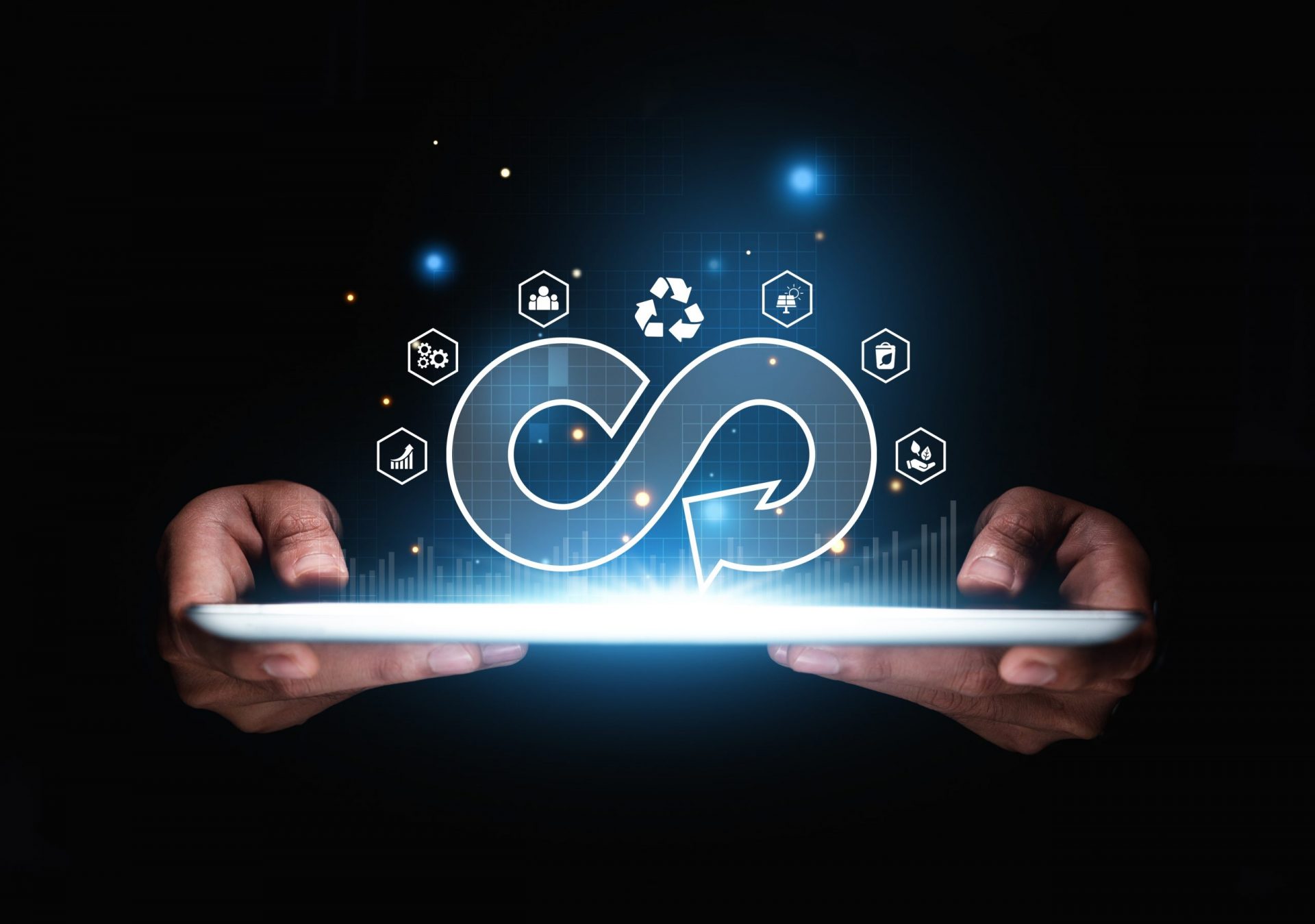
Topic area 4
Other up-and-coming future technologies
Innovative tools and systems that support and improve manufacturing processes and enable smarter production, a more efficient supply chain and product innovation are driving the industry towards integrated, sustainable and customized manufacturing solutions.
The topics include:
- Bioinformatics
- Multi-agent systems
- Game theory
- Complex systems
- Machine learning
- Computer Vision
- Formal methods
- High Performance Computing
- From edge to cloud
- Performance comparisons
- Neural network
- Deep learning
- Reinforced Deep Learning
- Diagnostics, detection of changes
